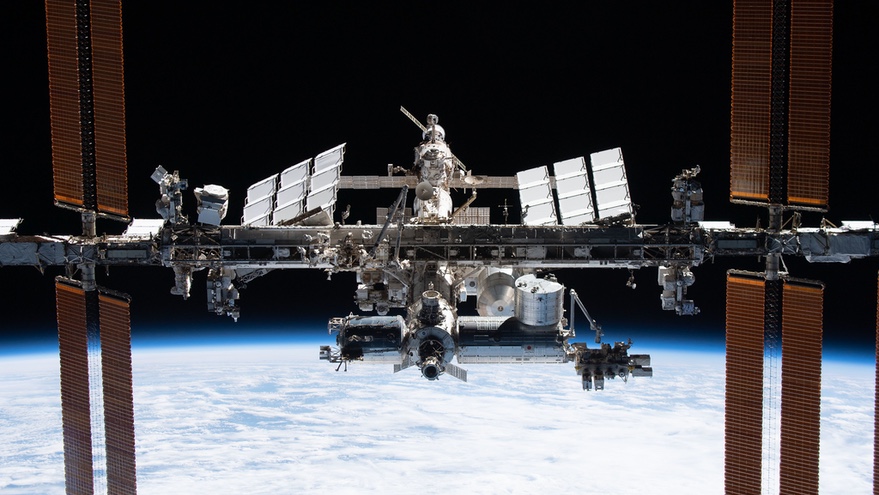WASHINGTON — The Biden administration formally supports extending operations of the International Space Station through the end of the decade, an announcement that is neither surprising nor addresses how to get all the station’s partners, notably Russia, to agree on the station’s future.
In a statement published on NASA’s ISS blog Dec. 31, NASA said the White House agreed to extend operations of the ISS through 2030. Federal law, last revised in 2015 with the enactment of the Commercial Space Launch Competitiveness Act, made it U.S. policy to operate the station through at least 2024.
“I’m pleased that the Biden-Harris Administration has committed to continuing station operations through 2030,” NASA Administrator Bill Nelson said in the statement. “The United States’ continued participation on the ISS will enhance innovation and competitiveness, as well as advance the research and technology necessary to send the first woman and first person of color to the moon under NASA’s Artemis program and pave the way for sending the first humans to Mars.”
While the form and the timing of the announcement — a blog post rather than a formal press release, issued on New Year’s Eve — was a surprise, the decision to extend the life of the ISS was not. NASA had made clear its long-term plan for the station was to operate it through the end of the decade, providing enough time for commercial stations to enter service in the late 2020s and enable a smooth transition from the ISS to those commercial facilities.
There have been several efforts in the last few years to formally extend the authorization of ISS operations in federal law from 2024 to 2028 or 2030. That included an effort led by Nelson in his final days in the Senate in 2018 to pass a commercial space policy bill with that extension. That bill won approval in the Senate by unanimous consent in December 2018 but failed to get the two-third majority needed to pass the House via a legislative procedure known as suspension of the rules.
The White House’s decision is alone not sufficient to continue ISS operations through the end of the decade. NASA said it would work with the station’s partners — Canada, Europe, Japan and Russia — “to enable continuation of the groundbreaking research being conducted in this unique orbiting laboratory through the rest of this decade.”
One partner has already signaled its willingness to continue the ISS. “I welcome this announcement & will submit a proposal to Member States for @esa to continue until 2030, as well,” tweeted Josef Aschbacher, director general of the European Space Agency, shortly after NASA published its statement.
A bigger challenge, though, will be keeping Russia in the ISS partnership. Russian officials have expressed doubts about both the technical ability of the ISS to operate through the end of the decade given problems with the Russian segment of the station as well as a desire to develop a Russian national space station.
“The current agreement is that we’ll keep operating it until 2024. It can, of course, keep flying after 2024, but every next year will come at greater difficulty,” Dmitry Rogozin, head of Roscosmos, said during a press conference at the International Astronautical Congress in Dubai Oct. 25. That difficulty, he said, was in the form of increasing technical failures and malfunctions.
Geopolitics will also be a factor in Russia’s future participation in the ISS, particularly given fears in recent weeks that Russia will attempt to invade Ukraine. The station’s operations were not affected by sanctions from Russia’s annexation of Crimea and incursion into eastern Ukraine in 2014, but after a Dec. 7 call between President Joe Biden and Russian President Vladimir Putin, U.S. officials said that “things we did not do in 2014 we are prepared to do now.”
Biden and Putin talked again Dec. 30. In a readout of that call, the Kremlin stated that Putin told Biden that any new sanctions against Russia would be a “grave error” and risks “a complete breakdown in Russia-U.S. relations.”
